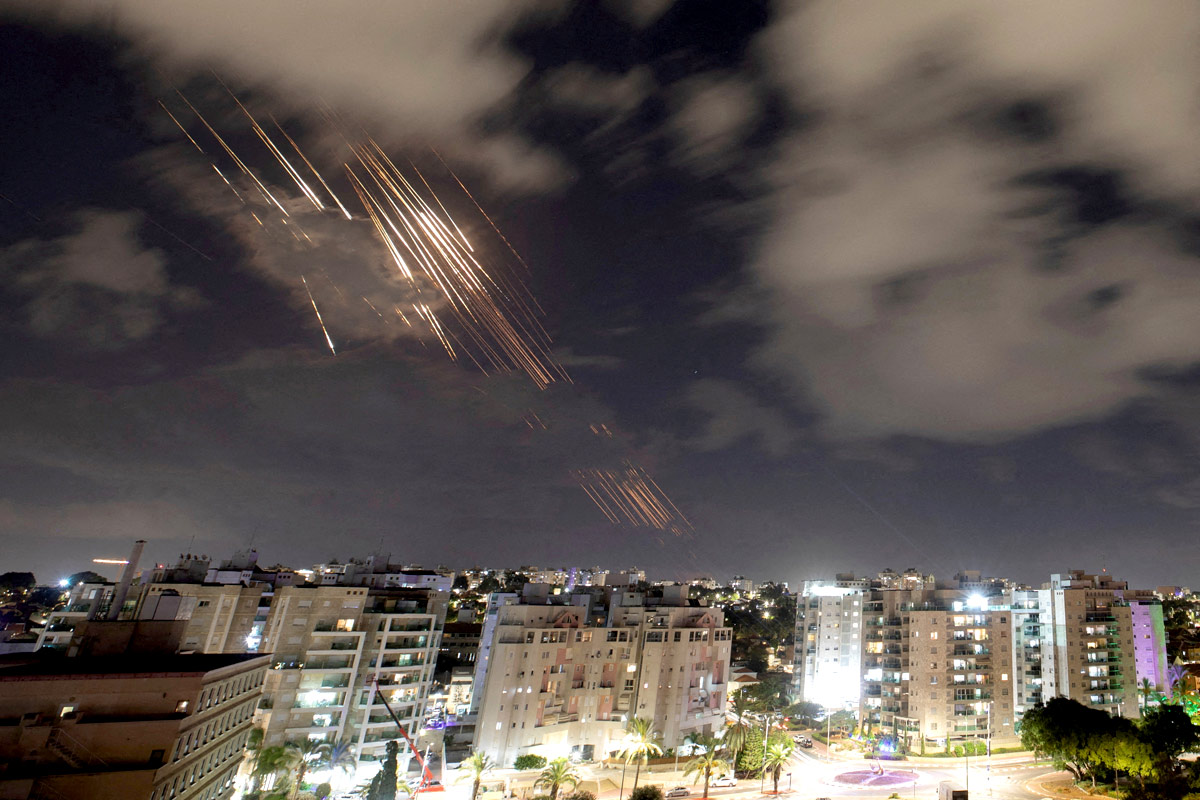Indian carriers are grappling with severe operational disruptions after Iran launched missile strikes on the US military base in Qatar late Monday.

Photograph: Amir Cohen/Reuters
This led to airspace closures for long hours in parts of West Asia.
Iran, Qatar, the UAE, Bahrain, and Kuwait shut down their skies following the attack, forcing airlines to cancel, divert, or delay flights through these vital corridors.
By Tuesday morning, most West Asian countries — including Qatar, Bahrain, Kuwait, and the UAE — had reopened their airspace following reports of a de-escalation and ceasefire.
However, Iran’s airspace remained closed, continuing to disrupt flight paths for carriers connecting India to Europe and North America via West Asia.
Air India, which had initially announced at 12:30 am on Tuesday that it was suspending all operations to West Asia and to and from North America and Europe, began resuming services later in the day.
“As airspaces gradually reopen in certain parts of West Asia, Air India will progressively resume flights to the region starting today (Tuesday), with most operations to and from West Asia resuming from 25 June,” a spokesperson said in the afternoon.
Flights to and from Europe, which were cancelled earlier, are resuming now. Services to the US and Canada’s East Coast will resume at the earliest opportunity, the spokesperson added.
The airline added that some flights may still face delays or cancellations due to re-routings and it would continue to avoid airspaces deemed unsafe.
“The safety and security of our passengers, staff, and aircraft remain our top priority,” the spokesperson said.
IndiGo, India’s largest airline by market share, also began issuing advisories early Tuesday.
At 12:40 am, it confirmed disruptions to flights operating to Dubai, Doha, Bahrain, Dammam, Abu Dhabi, Kuwait, Ras Al-Khaimah, and Tbilisi.
By 1:50 am, IndiGo said it had suspended operations to 15 cities, including Jeddah, Muscat, Sharjah, Riyadh, and Madinah, until at least 10 am as a safety measure.
A later update at 6:30 am noted that operations were being “prudently and progressively” resumed as airport closures were lifted.
Akasa Air, in a statement issued just after midnight, warned that its West Asia operations could be impacted and advised passengers to check flight status before travel.
The airline said it was monitoring the evolving situation to ensure operations remained within safe and approved air corridors.
SpiceJet issued a similar advisory around 2 am, confirming potential flight disruptions due to airspace shutdown and directed passengers to check its website or contact helplines.
For Indian carriers, the situation compounded due to Pakistan’s ongoing airspace restrictions.
Since May 7 — when India launched Operation Sindoor, targeting terror camps in Pakistan and Pakistan-occupied Kashmir — Islamabad has barred Indian aircraft from entering its airspace.
With both western and northwestern routes constrained, Indian carriers are now forced to take longer detours over the Arabian Sea, Egypt, and the Caucasus region.
This has seen extended flight times, higher fuel burn, and complex crew planning.
The latest crisis was sparked late Monday night when Iran launched around 19 ballistic missiles at the US Al Udeid air Base in Qatar.
Dubbed “Operation Glad Tidings of Victory” by Tehran, the attack followed reported US strikes on Iranian nuclear facilities a day earlier.
Iran is said to have given prior warning to both US and Qatari authorities, and most missiles were intercepted before impact.
One missile reportedly struck the base, though no casualties were reported.




